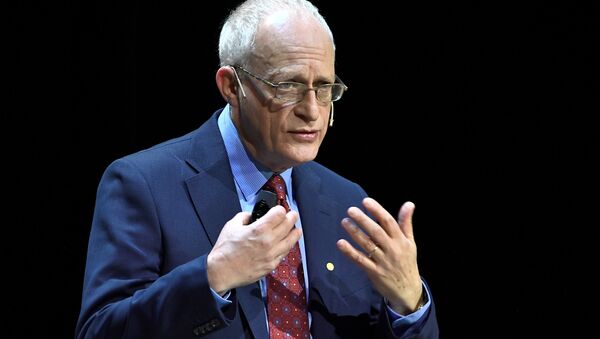He was also unambiguous in his condemnation of the euro, having believed it a "mistake" ever since introduction, and believing it "wouldn't be a sad thing at all" if the project was abandoned. The UK was "very clever" to stay out of it, he said.
https://t.co/9dNRUK0iPV — Oliver Hart, 2016 Nobel prize winner for economics "the Euro was a mistake"
— Gawain Towler (@GawainTowler) 13 December 2016
Hart attributed many of the EU's problems to its 28 member states not being "sufficiently homogeneous" enough to be considered one single entity. Trying to unify them into a single entity was an "error", he believes.
Nevertheless, Hart says the EU should retain a controlling function of some "important" areas such as free trade and freedom of movement, the latter of which he acknowledged provoked significant political concern.
Hart's similarly prize-winning colleague, professor Bengt Holmstrom, added it was imperative that the EU redefine its priorities, "limiting its activities" in the field of regulation, and instead focusing on making itself "clearer and simpler".
Oliver Hart,d Nobel Prize winner in Econs said d #EURO curency was a mistake.Advise on its discontinuation n d future
— Adelaja King (@Adelajaking) 13 December 2016
Hart's comments echo sentiments uttered by Joseph Stiglitz in September this year. Stiglitz, likewise a Nobel Prize winning economist, said the euro may have to be dropped completely as it was founded on flawed assumptions. Europe was stagnating, he said, as a "direct result" of the "fundamental challenges" in having a diverse group of countries share a common currency, and economic integration outpacing political integration.
Stiglitz proposed three possible options for the EU: fundamental reforms in the structure of the Eurozone and the policies imposed on the member countries; a well-managed end to the single-currency euro experiment; or a bold, new system dubbed the flexible euro.
The euro has come under increasing attack in recent months, with new political party Alternative for Germany calling for its abolition.



